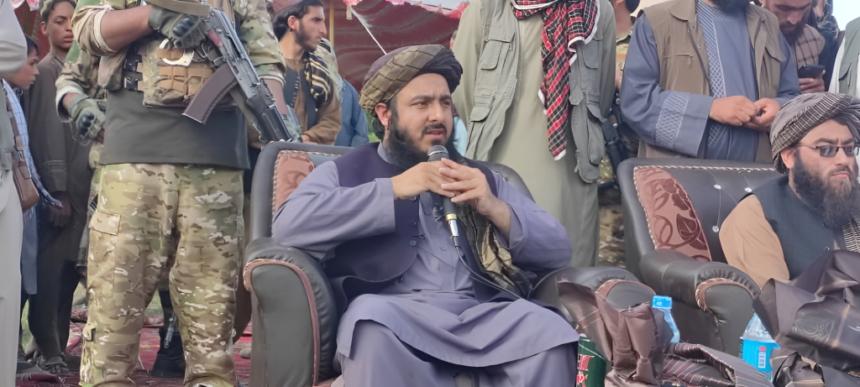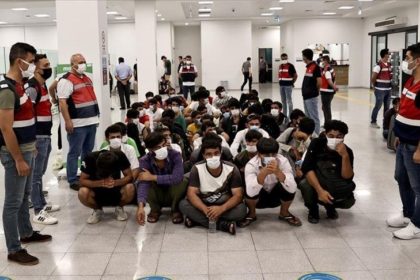RASC News Agency: The Taliban’s systemic ethnic favoritism continues to take a tangible toll on governance in Afghanistan, most recently illustrated by public comments from Mohammad Idris Anwari, the Taliban-appointed governor of Parwan province. Speaking at the inauguration ceremony of a new road in the village of Jowzak, located in the Koh Safi district, Anwari openly emphasized the regime’s commitment to prioritizing development for Pashtun communities a move that has further exposed the Taliban’s deep-seated ethnonationalist agenda. Governor Anwari praised the villagers of Jowzak for having allegedly sheltered Taliban fighters during what he described as the “jihad against the Americans.” He declared that now, under the so-called Islamic Emirate, those who had demonstrated loyalty to the Taliban’s cause would be the primary beneficiaries of state services and infrastructure.
“The people of this region supported us during jihad,” Anwari stated. “Now that we have established our Emirate, it is only just that they receive high-quality services and development projects.” Koh Safi, a rugged and mountainous district in southeastern Parwan near Kabul, was long considered one of the most insecure areas during the Republic era. Taliban militants frequently used the district, particularly its Pashtun-populated areas, as a launchpad for attacks against Kabul and other neighboring provinces. These same regions now enjoy elevated status under Taliban rule, with development and aid disproportionately funneled into them.
Anwari, also known as Mufti Idris, is a member of the Pashtun ethnic group and has been repeatedly accused by local civil society groups of directing public resources and international aid almost exclusively toward Pashtun-majority areas. According to several sources, he has played a key role in marginalizing Tajik-populated districts, despite the fact that Tajiks make up the majority of Parwan’s population. In one particularly troubling incident in Sayd Khel district, international aid organizations had planned to construct a much-needed health clinic in the district center. However, this plan was derailed when Pashtun residents of the village of Ancho backed by Anwari intervened and demanded that the project be relocated to their area, despite the original location being more accessible to a broader population.
More recently, Anwari’s office confirmed that he met with the head of Da Afghanistan Breshna Sherkat (DABS), the national power utility, to advocate for the construction of an electrical substation in the Barik Ab area. This zone, now home to newly settled Pashtun families, appears to have been prioritized for infrastructure investment solely on the basis of ethnic and political alignment. Although Parwan remains predominantly Tajik, the Taliban’s consolidation of power has led to a strategic reshaping of local governance. Key provincial institutions are now dominated by Pashtun Taliban appointees, and policymaking is increasingly directed toward the development of Taliban-aligned areas. Community meetings often disregard the needs of the wider population in favor of narrowly defined ethnic interests.
Notably, the same Pashtun-dominated regions that were once labeled “high-risk” under the previous government due to Taliban activity are now being rewarded with state-backed projects and foreign-funded initiatives. This sharp reversal not only reflects the Taliban’s opportunistic use of power but also highlights the punitive neglect of communities that refused to support insurgency or extremism. The Taliban’s rule in Parwan offers a microcosm of the broader ethnocentric policies that plague their governance across Afghanistan. Far from promoting national unity or inclusive development, the Taliban have used state resources as instruments of political patronage rewarding loyalty while systematically marginalizing non-Pashtun and dissenting communities. In doing so, they have entrenched an exclusionary and discriminatory system that prioritizes ethnic affiliation over equitable service delivery.
This pattern of governance not only fuels deepening ethnic tensions but also erodes the social fabric of a nation already fractured by decades of war. As long as ethnic favoritism guides administrative decisions, millions of Afghanistani citizens particularly women, ethnic minorities, and peaceful communities will continue to be deprived of their basic rights and dignity under Taliban rule.






